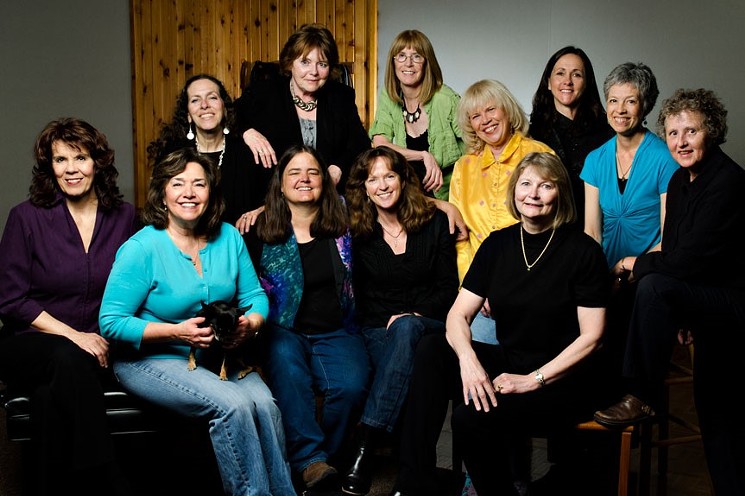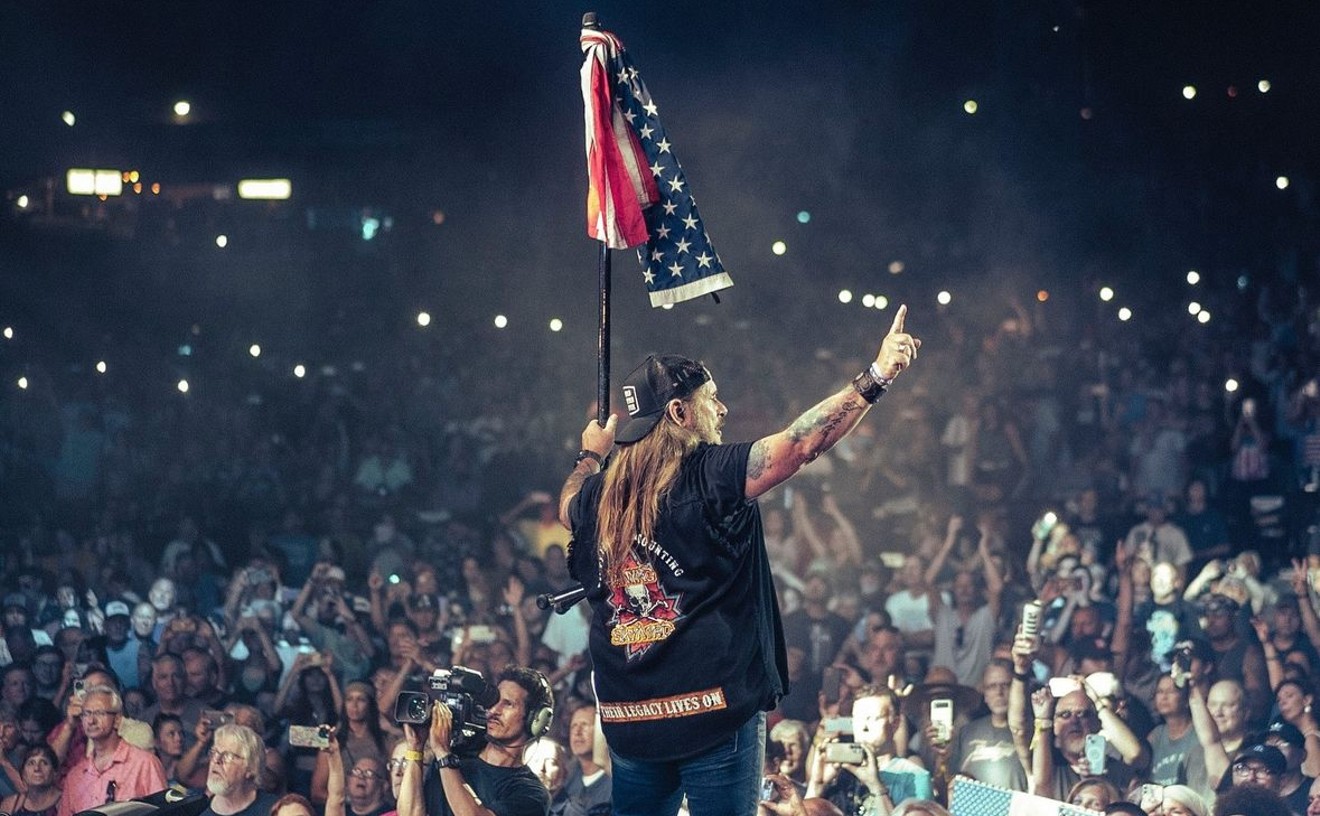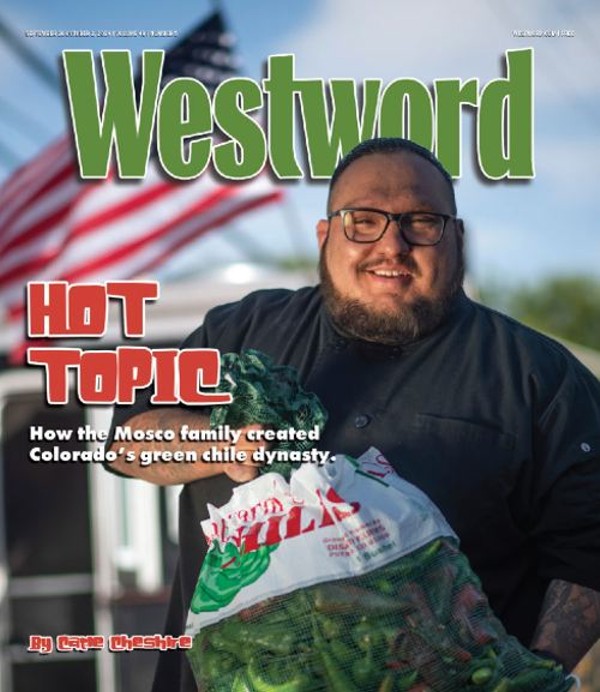Folk music was booming when singer and guitarist Harry Tuft opened the Denver Folklore Center on East 17th Avenue near Pearl Street in 1962.
The center — which gradually took over half a block of storefronts — became a destination for musicians traveling from one coast to the other. The Folklore Center sold and repaired acoustic instruments, ran a music school, peddled records and hosted a concert hall that sat on a lot now occupied by a 7-Eleven.
Tuft kept a book of autographs of artists who played that stage, including folkies like Pete Seeger, Joan Baez and Ramblin’ Jack Elliott, bluesmen like Muddy Waters and Sonny Terry, and bluegrass legends Bill Monroe, Lester Flatt and Earl Scruggs.
The Folklore Center also hosted Colorado acts such as trance bluesman Otis Taylor, rock band Zephyr and late guitar wizard Tommy Bolin — all three of whom are being inducted into the Colorado Music Hall of Fame presented by Comfort Dental at a December 3 concert at the Mission Ballroom.
While the center thrived throughout the ’60s, by the late ’70s, the folk music revival had slowed down, and Tuft figures he was losing about $15,000 a year promoting concerts.
“In ’70s money, that’s a lot of money,” he says now. “It occurred to me that if I could turn the concert hall into a nonprofit, I could get subscriptions, memberships, grants and things like that — and maybe it could continue.” He worked with a group of Folklore Center regulars, including Geoff Withers, Alan Kelly and Larry Shirkey, to do just that, and in 1979, the Music Association of Swallow Hill — the name was a nod to the surrounding neighborhood — was born.
This year marks the organization's fortieth anniversary, and on Saturday, November 9, Swallow Hill will also be inducted into the Colorado Music Hall of Fame — along with the Mother Folkers, Dick Weissman and Walt Conley — at a concert and celebration at Central Presbyterian Church, 1660 Sherman Street.
When Swallow Hill started out, its focus was wide.
“I think the articles of incorporation describe the organization in the broadest terms of folk art,” says Withers, who was head of Swallow Hill’s first board of directors and a manager at the Folklore Center. “That included all these other disciplines, like weaving and material culture, and dance and other things besides just music. That was kind of our goal in the beginning. Then the dancers and the weavers didn’t have much economic viability, whereas music kind of had this aura of people making money.”
In 1980, changes were taking place on the block that comprised the assorted Folklore Center businesses, and Tuft sold the center to the manager of the repair shop, Rick Kirby, who reopened it in a converted house on South Broadway. Swallow Hill went along, and teachers gave music lessons in an upstairs room while the nonprofit promoted concerts at various venues and churches in the area.
When a nationwide economic recession in 1981 took a bite out of the Folklore Center's business, Tuft resumed control until 1983, when he closed its doors. (He reopened the center on South Pearl Street a decade later and sold it again in 2016.)
For the next five years, Swallow Hill, under the leadership of autoharp player and music educator Julie Davis, made its home at the Capitol Hill Community Center and other neighborhood spots. Eileen Niehouse, a guitar teacher and a member of the Mother Folkers, says the nonprofit struggled to survive during those nomadic years but always managed to find places to hold concerts and lessons.
In 1987, Niehouse helped the organization find a new home, at 1905 South Pearl Street, and become the nonprofit’s office manager.
“I was mostly there because we needed somebody to do it,” she says. “It’s not that I was very good at it. I was okay. I got us the building, and we kept going.”
That same year, 26-year-old Seth Weisberg came on as director of Swallow Hill.
“Seth came in, and he had that youthful energy,” Niehouse says. “He managed to move in and go, ‘Okay, let’s try this, and let’s try this,’ and got it to be really much more healthy there.”

Denver band Half Pint and the Growlers plays to a packed Quinlan Cafe at Swallow Hill Music's Annual One Epic Night fundraiser on Saturday, May 18, 2019.
Kit Chalberg
“We had more job titles, more payroll, more hours of the day," says Weisberg, who eventually became executive director of the organization. "It went from being off and on to being on all the time. It went from having concerts and classes to having jam sessions and folk forums and coffeehouse nights. And open stages. And bigger gigs, and sponsorships of the gigs. Deals like that.”
But that growth didn't come easily, partly because the group lacked the philanthropic support that other arts organizations received at the time.
“We had to really hustle a lot,” recalls Weisberg. “We also had a less defined idea of what folk music was, which I think ended up being our strength. And I think we grew from becoming much broader. Believe it or not, we had arguments: ‘Is bluegrass folk music? Is gospel music folk music?’ It’s kind of absurd. Now, it’s obvious.”
Under Weisberg’s leadership, the nonprofit got so big that it ran out of space. The group began renting nearby storefronts for classes and lessons.
When musician Chris Daniels took over as executive director in 1995, Swallow Hill was still on South Pearl Street. Daniels remembers that Rebecca Miklich, who was director of the music school at the time, and Meredith Carson, the concert director, started hosting bigger concerts and scheduling more classes, and within two years, the whole enterprise was taking up much more space than it had previously.
In 1998, a church at 71 East Yale Avenue went on the market, and Daniels and Swallow Hill’s board of directors ran a capital campaign to raise about $800,000 to purchase the property. With the new building, Daniels says, available space went from 2,500 square feet to 22,000. Swallow Hill is still headquartered at the East Yale address, with satellite classroom locations in Lowry and Highland.
Daniels, who now heads up the Colorado Music Hall of Fame, says that Swallow Hill’s core mission has stayed the same over the decades: offering music education to people of all ages.
“It’s all about the joy of music,” he says. “That’s the definition to me of folk, which is that it’s community music. Before the invention of radio and the phonograph, we had all made our music back then. That’s the soul of that organization: We should all be able to make our music and have fun doing it. You don’t have to go out and be a star.”

The Mother Folkers will be honored alongside Swallow Hill by the Colorado Music Hall of Fame.
The Mother Folkers
Daniels says Paul Lhevine, who’s been Swallow Hill’s chief executive officer since 2015, has taken outreach to a new level. Lhevine says the organization works with the community in several ways: its music school, its concerts, its after-school classes; its music-therapy program (three board-certified music therapists work with the Alzheimer’s Association and with veterans and seniors at retirement facilities); and the Little Swallows early-education program, which reaches 28 schools, 125 classrooms and 1,800 preschoolers every week.
“These 1,800 kids are coming from neighborhoods of poverty that would never have these opportunities otherwise to have an introduction to formal music education,” Lhevine says.
Last year, Swallow Hill produced 229 concerts that brought in 64,904 concert-goers across its own venues — the 75-seat Quinlan Cafe, named for donor and former boardmember Quinlan; the 100-seat Tuft Theatre, named after Harry Tuft; and the 300-seat Daniels Hall, named after Chris Daniels — as well as summer concert series at the Denver Botanic Gardens, Clyfford Still Museum and Four Mile Historic Park.
Lhevine says Swallow Hill is balancing its legacy with new ways to remain relevant.
At its music school — currently cited as the second-largest acoustic music school in the country — seventy faculty members offer group classes, private lessons and workshops for all levels of students, who can learn on more than two dozen instruments, including accordion, autoharp, cello, hammered dulcimer, mandolin and ukulele. Roughly 80 percent of the school's students are adults.
“They’re looking to come in after work and build community,” Lhevine explains. “They’re looking to come after work and make music with other people who also want to make music. They want to become part of this creative class, and so they’ve opted to not play video games in their basement. They’ve opted to come and do something as part of a community.”
And that’s how history is made.
Swallow Hill 40th Anniversary Concert and Colorado Music Hall of Fame Induction, including a reunion of the Mother Folkers, takes place at 6:30 p.m. on Saturday, November 9, at Central Presbyterian Church, 1660 Sherman Street. Tickets are $35 to $42 and available at swallowhillmusic.org.
Hear artists mentioned in this article and more favorites from Westword writers on our Westword Staff Picks playlist.














